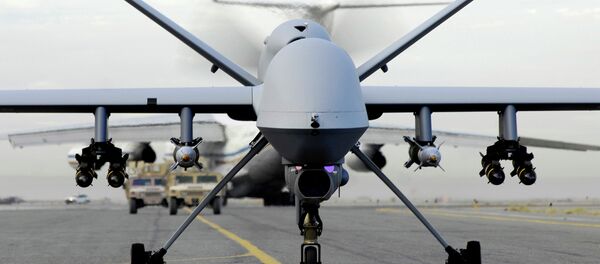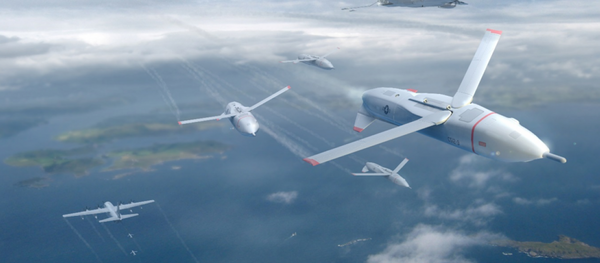Last month, veteran US Air Force pilot Gene Lee went up against a flight simulator using the latest in artificial intelligence.
"It seemed to be aware of my intentions and reacting instantly to my changes in flight and my missile deployment," Lee said, according to Breaking Defense. "It knew how to defeat the shot I was taking. It moved instantly between defensive and offensive actions as needed."
While some might see this test as early signs of a Pentagon attempt to build autonomous killing machines, Carter put those fears to rest.
"In many cases, and certainly whenever it comes to the application of force, there will never be true autonomy, because there’ll be human beings (in the loop)," he told Breaking Defense on Thursday.
Carter recently completed a trip to San Francisco, where he met with tech leaders as part of the Pentagon’s outreach to Silicon Valley.
"We’re making big investments" in autonomy, he said, but asserted that any strides would have to be made within an ethical framework.
"Whatever the mix [of manned and unmanned systems], there’s always going to be human judgement and discretion," he added. "That’s both necessary and appropriate."
While the rest of the world has good reason to be suspicious of an autonomous US killing machine, claims made by an American Air Force official last month indicate that AI development may be a symptom of Pentagon paranoia.
"I don’t think it’s impossible that somebody will try to build a completely autonomous system, and I’m not talking about something like a cruise missile…or a mine that requires a human to target it and release it and it goes and finds its target," Paul Selva, vice chair of the Joint Chiefs of Staff, said at the Center for Strategic and International Studies.
"I’m talking about a wholly robotic system that decides whether or not, at the point of decision, it’s going to do lethal ops."
Selva called for international regulations on AI.
"I think we do need to examine the bodies of law and convention that might constrain anyone in the world from building that kind of system," he said. "But I’m wholly conscious of the fact that, even if we do that, there will be violators…"
Hopefully one of those violators will not be the Pentagon.





